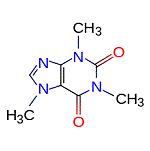What is the content of espresso?
How much is it? Depending on your body's metabolism, adults weighing 70kg normally drink less than 500mg a day, and it is recommended that you consume about 300-400mg of 4-6 cups of coffee a day.
How much is too much? It depends on how fast your body metabolises caffeine, but as a general rule: "A high dose of caffeine is 500mg per day, based on a 70kg adult, which works out at six to eight cups of instant coffee," says Karen Dickinson, of Body Acoustics Health and Sports Nutrition. "A moderate dose is 300 to 400mg per day; four to six cups."

So how much caffeine is there in common drinks? The following is the caffeine content per 100 ml unit:
Here's how much caffeine (in mg per 100ml) is contained in some of your favourite beverages...
Cocoa Coca-Cola: 9.7 mg/100ml
Instant coffee Instant Coffee: 24.1 mg/100ml
Espresso Espresso Coffee: 173.6 mg/100ml
Hand-brewed pure coffee (black coffee) Plunger Coffee: 45.4 mg/100ml
Decaffeinated coffee Decaf (instant) Coffee: 1.1 mg/100ml
Diet Coke Diet Coke: 12.7 mg/100ml
Energy drink Lift Plus: 14.5 mg/100ml
Energy drink Pepsi Pepsi Max: 19.4 mg/100ml
Energy drink Sugar-free Pepsi Diet Pepsi: 10.1 mg/100ml
Energy drink Red Bull Red Bull: 32 mg/100ml
Energy drink Red Bull Energy drink Red Bull Energy Shot: 133.3 mg/100ml
Tea Tea (white): 6.3mg/100ml
This is an Australian brand energy drink, which has not yet entered V Pocket Rocket Energy Shot: 266.5 mg/100ml in China.
Important Notice :
前街咖啡 FrontStreet Coffee has moved to new addredd:
FrontStreet Coffee Address: 315,Donghua East Road,GuangZhou
Tel:020 38364473
- Prev

What's the harm of drinking coffee? Will it catch fire?
The caffeine in coffee is difficult to dissolve in cold water, but easily soluble in hot water. Caffeine stimulates the cerebral cortex, eliminates drowsiness, increases feeling and thinking, and can be used as a cardiotonic agent to regulate heart function, as well as dilating kidney blood vessels and diuresis. However, caffeine is not just coffee.
- Next

The difference between instant coffee and freshly ground coffee
Instant coffee is a kind of coffee products, which can not be regarded as coffee in the real sense, which is a common view in the traditional coffee industry. Instant coffee is a synthetic product of industrialization, and it is a good substitute for coffee in some specific environments, such as long-distance travel on trains and airplanes, rather than coffee in the original sense. Instant coffee has the original nutrition and health care in the process of synthesis.
Related
- Beginners will see the "Coffee pull flower" guide!
- What is the difference between ice blog purified milk and ordinary milk coffee?
- Why is the Philippines the largest producer of crops in Liberia?
- For coffee extraction, should the fine powder be retained?
- How does extracted espresso fill pressed powder? How much strength does it take to press the powder?
- How to make jasmine cold extract coffee? Is the jasmine + latte good?
- Will this little toy really make the coffee taste better? How does Lily Drip affect coffee extraction?
- Will the action of slapping the filter cup also affect coffee extraction?
- What's the difference between powder-to-water ratio and powder-to-liquid ratio?
- What is the Ethiopian local species? What does it have to do with Heirloom native species?

